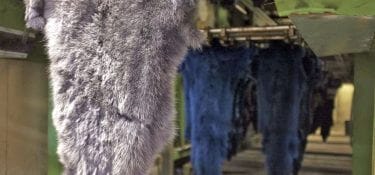Kering’s most notable name has long had the mission of a fur-free Kering. “Our company is increasing its internal awareness when it comes to environmental matters – says François-Henri Pinault to Le Figaro –. It’s our responsibility to understand the way we live, the challenges we face, the bottom trends of society”. Yet, French and international associations representing the fur chain have answered. Because while the general press may simply report with no care that a fashion group no longer wants to use animal materials in its collections, the segment’s operators will not. Mr. Pinault has been accused of weakness, because it allowed “no-fur” associations to convince him, as well as of being a hypocrite, because this step was taken much after the early steps made by the fur segment itself.
Pinault’s argument
Kering’s president and CEO spoke with Le Figaro about a choice made on September 24th with a press release. “It’s a process that joins our efforts to increase animal welfare – his words -. We have progressively advanced on this matter based on the relevance of fur within our brands and, most of all, based on the impact we would have had with our suppliers. For some brands it was a matter of image, even if volumes were small. That’s why we allowed flexibility of choice for each brand, as they prepared their virtuous evolution”.
Fur associations’ answer
The rebuttals weren’t awaited long. Fourrure Française, the French association representing the local fur segment, accused Mr. Pinault of weakness. The “no-fur” choice demonstrates the incapability of saying no to animal-rights organizations”, they write in a note. The so-believed idea that fur has no place in modern fashion was denied by a recent survey that claimed that “60% of French people is open to changing his/her opinion on fur”. But even more importantly, that “this inversion has to do – continues Fourrure Française – simply with communication and marketing, all while the presidential campaign is taking place, and during which the radicalization of animal-rights movement has been discussed”.
Surprising choice
While speaking with WWD, Mark Oaten, CEO of IFF (International Fur Federation), called the news an “unpleasant surprise”. Mr. Oaten said to have recently collaborated with Kering to develop wildlife conservation initiatives in Namibia. Adding that he also dialogued with them in relation to the Furmark certification system. “We really believed they wanted to focus on sustainable practices, saving wildlife and using natural resources such as fur – he concludes -. With this statement, the effort and achievements done until now, along with the regulatory advances we drove throughout the years, risk to go lost”.
Read also:
- Kering succumbs to no fur: no more fur from 2022
- IFF launches Furmark with LVMH for fur traceability
- LVMH: 5 million for the Amazon forest and efforts focused on biodiversity










